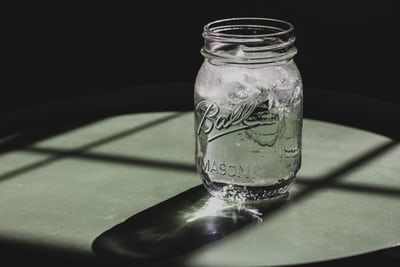Pros and Cons of Reverse Osmosis Water Filters
We live in difficult times. The air we breathe is polluted, the soils on which we farm are contaminated, the food we eat is genetically modified, making some contaminate, and the water we drink is also contaminated. When we drink such contaminated water, we can get infections. Some water has dissolved salts and upon drinking such, their teeth discoloration. The dissolved salts can accumulate in the kidney and cause kidney stones. In the worst cases, the kidney organ totally fails. In trying to evade these detrimental consequences, people use various water filtration systems, including the reverse osmosis filtration system. If you are contemplating using reverse osmosis filters to make your water palatable, you surely would like to know its advantages and disadvantages. This article sheds light on the pros and cons of reverse osmosis filters.
Pros of reverse osmosis filters
Reverse osmosis water filters are efficient- one of the most efficient means of filtering water is the reverse osmosis filtration system. Environmental Protection Agency (EPA) cites reverse osmosis as one of the water filtration techniques that removes the highest amounts of disease-causing microorganisms and solid particles. Remember, reverse osmosis works by trapping any substance that is equal to or above one micrometer in size as it forces water through a semi-permeable membrane. This means it captures most dissolved substances and microorganisms like bacteria.
Reverse osmosis saves electric power- if you want a water filter that will not need electricity, then look for the best reverse osmosis filter. The principle behind the functionality of reverse osmosis filters is the use of high-water pressure to force water through a semi-permeable membrane. Because the system uses water pressure, it does not need to use electricity. Thus, with the best reverse osmosis filter, you purify your water as you save on energy.
Reverse osmosis filters are environmentally friendly– many people fancy bottled water, ranking them as the best. Well, that could partially true, bottled water is relatively safe. However, the harm to the environment goes without saying- all those plastic bottles are harmful to the environment. With reverse osmosis though, you enjoy safe water at home, and there is no need to buy the bottled water. In the process, you the environment from those plastic bottles.
Reverse osmosis filter gives you better quality water for cooking– purifying water using reverse osmosis filters clears dissolved salts from the water. Such water gives your ingredients a canvas on which they can shine in food. With reverse osmosis filtered water, your food tastes better.
Reverse osmosis filters assure you of good health– reverse osmosis filtration system is unrivaled when it comes to removing dissolved salts from the water. The substances removed from water include harmful lead and copper metal traces. This is possible when you supplement the reverse osmosis filter with activated carbon filters. With lead and copper removed from your water, cancer and other carcinogenic diseases are kept at bay. You and your family’s health is guaranteed.
Reverse osmosis filters are simple to maintain– while other filtration systems are expensive to maintain, the best reverse osmosis filter gives easy time in maintaining it. All it takes to maintain the reverse osmosis filters is to change the filters as per the manual. The manufacturers of reverse osmosis filters provide all the information on changing the filters, including how and when.
Reverse osmosis filters complement other water purification systems- the UV water filtration system exposes microorganisms to UV light, killing about 99.99% of them. However, the UV purifiers do not remove the dissolved substances from the water. You the reverse osmosis filters, you can supplement UV purification systems.
Cons
The reverse osmosis water filters have the following advantages;
Reverse osmosis filters are prone to clogging– even the best reverse osmosis filters can clog with time when it filters chlorine off the water. Timely maintenance will be required to prevent the filters from clogging. One thing people do to ensure the reverse osmosis filter does not clog is the inclusion of a sediment pre-filter in the system.
Reverse osmosis filters can be expensive to replace. While the basic maintenance process for the reverse osmosis filters involves replacing the filters as per the manual, the cost of filter replacement can be so expensive. Some proprietary brands like Culligan or Rainsoft sell their filters expensively.
Reverse osmosis filters wastewater– EPA states that “Reverse osmosis units use approximately three times as much water as they treat,” and this will heighten your water bills. In fact, some RO filters only recover 5-15% of the water they filter, and the other portion is wasted.
Reverse osmosis water filters require wastewater disposal afterward- the system used in reverse water filtration does not provide for wastewater catering. This means you must find out how to handle the wastewater to avoid ecosystem contamination.
Conclusion
Reverse osmosis filters are among the highly revolutionized water filtration systems. They are efficient, easy to maintain, remove most dissolved substances, and do not require electric use. On the other hand, they can waste more than two-thirds of the water they filter, produce wastewater that is hard to dispose of to prevent ecosystem contamination, and the cost of replacing the filters can be so expensive.
